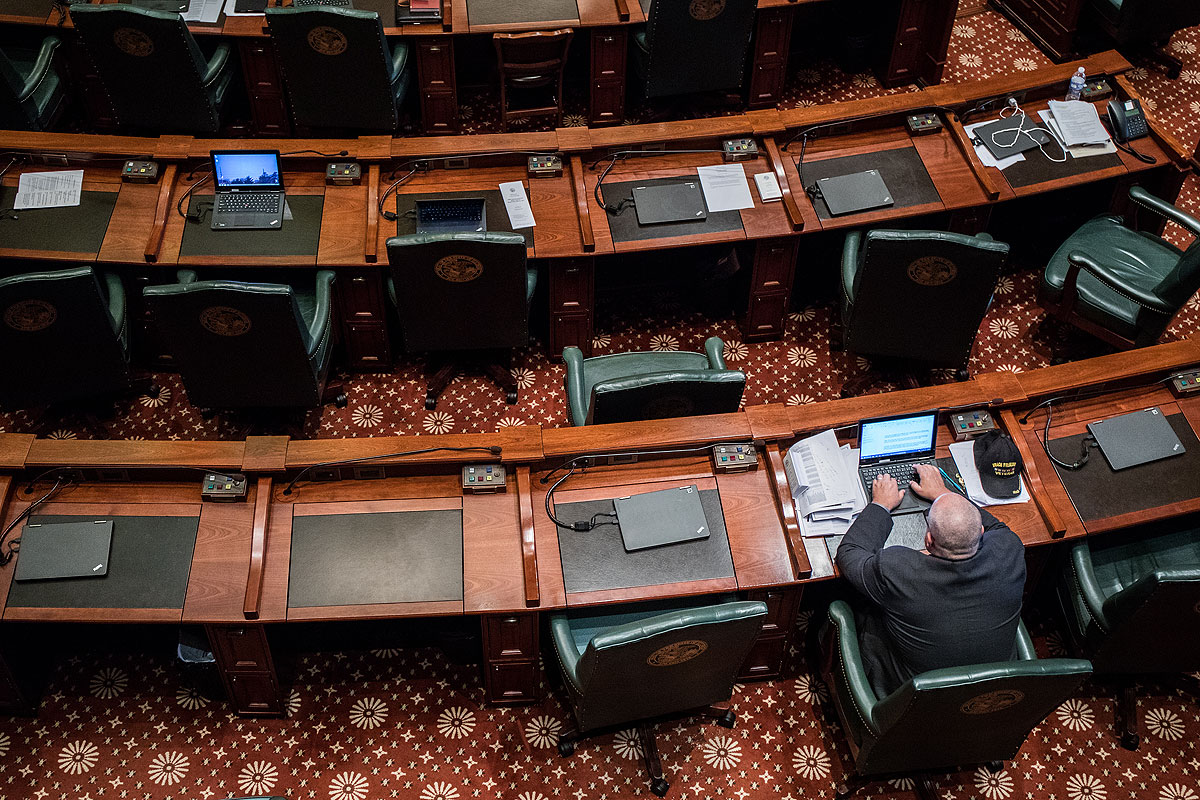It's June 14, two weeks before the state's fiscal year ends and the state passes one of the most dramatic milestones of its years-long budget impasse. If we blow through that deadline, it's likely the state's bond ratings will be downgraded to junk status, with potential repercussions in markets outside the state.
After a couple weeks of relative quiet in Springfield, Republican House and Senate are out with a budget plan. And… it gets to the heart of why finding compromise is going to be hard, even with the bright red deadline of July 1 looming.
Each piece of the budget plan is broken down into "the details" and "the compromise." To take one example, this is included under compromises: "Four-year [property tax] freeze rather than a permanent freeze as a compromise for making the Democrat-passed income tax increase sunset after four years."
But as Rich Miller asks: "But is this really a compromise? The Senate Democrats ultimately rejected a four-year property tax freeze, but the Republicans say their four-year freeze is a compromise from Rauner’s permanent freeze—except the governor has been saying for weeks that he wants a four-year freeze." Last month they were debating two years versus four years.
Not to mention that, in 2015, Rauner was calling for a two-year property tax freeze. Negotiations have been going on for so long that it's hard to tell what was the initial position and what was the compromise anymore, and when the compromise began.
And some of the compromises are not especially new. Rather than implementing term limits for all legislators, they're looking at term limits for just leadership positions—that was on the table in May before the session ended and had bipartisan support. It is a compromise from the governor's agenda, but it's a pre-existing one.
There are some new developments. The debate over the details of workers'-comp reform, which was still quite opaque in May, has been filled in with some specific details. Two big elements are in there: no change to causation standards, which was a big sticking point, as well as the use of guidelines outside of those published by the American Medical Association to determine disability.
And on the big number, the actual budget spending, the two sides are just over a billion apart. That may sound like a lot, but in the context of a $36 or $37 billion budget it's a small percentage. (Though, given the trench warfare of negotiations, it could still turn out to be a big deal.)
That there's more detail on the details is an encouraging sign, as is the relatively narrow gap in spending. But the divide has always been more about politics—and who will register what as a win—than policy. So if they're going to compromise, they'll have to be able to agree on what the compromises are first.



